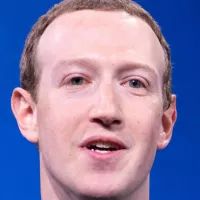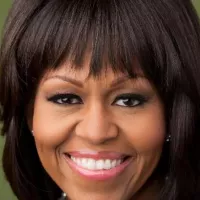Instagram is a photo and video-sharing social networking service owned by Meta Platforms. Users can upload and edit media with filters, hashtags, and geotags, sharing content publicly or with approved followers. The platform allows users to browse content by tags and locations, view trending posts, like photos, and follow others. Available on iOS, Android, Windows, and the web, Instagram supports 32 languages and enables sharing to other platforms like Facebook. Its core features revolve around image editing and social interaction centered on visual content.
2005: Comparison to Flickr Acquisition
In 2005, The Instagram/Facebook deal price was compared to the $35 million Yahoo! paid for Flickr.
March 5, 2010: Seed Funding for Burbn
On March 5, 2010, Kevin Systrom closed a $500,000 seed funding round with Baseline Ventures and Andreessen Horowitz while working on Burbn.
July 16, 2010: First Instagram Post
On July 16, 2010, the first Instagram post, a photo of South Beach Harbor at Pier 38, was posted by Mike Krieger.
October 6, 2010: Instagram iOS App Release
On October 6, 2010, the Instagram iOS app was officially released through the App Store.
October 2010: Instagram Launch on iOS
In October 2010, Instagram was launched for iOS by Kevin Systrom and Mike Krieger.
October 2010: Instagram released
Instagram was released in October 2010.
December 2010: Instagram reaches one million users
In December 2010, Instagram reached one million registered users.
January 2011: Instagram introduced hashtags
In January 2011, Instagram introduced hashtags to help users discover both photos and each other, encouraging specific and relevant tags for better visibility.
February 2011: Series A Funding
In February 2011, Instagram raised $7 million in Series A funding from various investors.
June 2011: Instagram reaches 5 million users
In June 2011, Instagram announced that it had 5 million users.
June 2011: Instagram passes 100 million uploaded photos
In June 2011, Instagram passed 100 million photos uploaded to the service.
August 2011: Instagram passes 150 million uploaded photos
In August 2011, Instagram passed 150 million photos uploaded to the service.
August 2011: Jessica Zollman Joins Instagram
In August 2011, Jessica Zollman joined Instagram as a Community Evangelist.
September 2011: New version of Instagram app released
In September 2011, a new version of the Instagram app introduced new and live filters, instant tilt-shift, high-resolution photographs, optional borders, one-click rotation, and an updated icon.
February 2012: Instagram added "Lux" filter
In February 2012, Instagram introduced the "Lux" filter, which lightens shadows, darkens highlights, and increases contrast in images.
April 3, 2012: Android App Release
On April 3, 2012, Instagram released a version of its app for Android phones, and it was downloaded more than one million times in less than one day.
April 9, 2012: Facebook Acquisition
On April 9, 2012, Facebook, Inc. (now Meta Platforms) bought Instagram for $1 billion in cash and stock, with a plan to keep the company independently managed.
April 2012: Facebook Acquisition and Android App Release
In April 2012, Facebook acquired Instagram for approximately US$1 billion in cash and stock. The Android version of Instagram was also released in April 2012.
April 2012: Series B Funding
In April 2012, Instagram raised $50 million in Series B funding from venture capitalists, valuing the company at $500 million.
April 2012: Instagram reaches 30 million users
In April 2012, Instagram reached 30 million users.
June 2012: Instagram introduced "Explore" tab
In June 2012, Instagram introduced the "Explore" tab, displaying popular photos, nearby locations, and search functionality within the app.
July 2012: Instagram reaches 80 million users
In July 2012, Instagram reached 80 million users.
August 14, 2012: Britain's Office of Fair Trading Approval
On August 14, 2012, Britain's Office of Fair Trading approved Facebook's acquisition of Instagram.
August 22, 2012: US Federal Trade Commission Approval
On August 22, 2012, the Federal Trade Commission in the U.S. closed its investigation, allowing Facebook's acquisition of Instagram to proceed.
September 6, 2012: Acquisition Closed
On September 6, 2012, the deal between Instagram and Facebook officially closed with a purchase price of $300 million in cash and 23 million shares of stock.
November 2012: Website Profiles Launched
In November 2012, Instagram launched website profiles, allowing anyone to see user feeds from a web browser with limited functionality, as well as a selection of badges, and web widget buttons to link to profiles.
November 2012: Desktop Interface Release
In November 2012, a feature-limited desktop interface for Instagram was released.
February 2013: Instagram reaches 100 million users
In February 2013, Instagram reached 100 million users.
April 2013: Emily White Joins Instagram as Director of Business Operations
In April 2013, Emily White joined Instagram as Director of Business Operations.
June 2013: Instagram incorporated 15-second video sharing
In June 2013, Instagram introduced 15-second video sharing to its platform.
June 2013: Instagram reaches 130 million users
In June 2013, Instagram reached 130 million users.
September 2013: Instagram reaches 150 million users
In September 2013, Instagram reached 150 million users.
September 2013: Instagram to begin selling advertising
In September 2013, Instagram's Director of Business Operations Emily White stated that Instagram should be ready to begin selling advertising by September 2014.
October 2013: Instagram Announces Image and Video Ads
In October 2013, Instagram announced that video and image ads would soon appear in feeds for users in the United States.
October 2013: Instagram deletes photographer Petra Collins' account
In October 2013, Instagram deleted Canadian photographer Petra Collins' account after she posted a photo with a small area of pubic hair visible. This sparked debate about Instagram's content policies.
November 1, 2013: First Image Advertisements Displayed on Instagram
On November 1, 2013, the first image advertisements were displayed on Instagram for users in the United States.
December 2013: Emily White leaves Instagram
In December 2013, Emily White left Instagram to join Snapchat.
December 2013: Instagram announced Instagram Direct
In December 2013, Instagram introduced Instagram Direct, a feature that lets users interact through private messaging. Users who follow each other can send private messages with photos and videos.
2013: Users sell drugs on Instagram
After the 2013 revelation about illegal drug trade, Facebook, Inc., Instagram's parent company, asked users to report such content, which a "dedicated team" would review.
2013: BBC discovers drug sales on Instagram
In 2013, the BBC discovered users, primarily in the United States, were using Instagram to post images of drugs for sale, using hashtags and completing transactions via instant messaging applications like WhatsApp.
March 2014: Technology switch to Facebook Places
In March 2014, Instagram started to test and switch the technology to use Facebook Places for location tagging. Since the app's launch it had used the Foursquare API technology.
March 2014: Android App Update
In March 2014, the Android app received an update that cut the file size by half and added performance improvements.
July 2014: Instagram Releases Messaging App Bolt
In July 2014, Instagram released Bolt, a messaging app where users click on a friend's profile photo to quickly send an image, with the content disappearing after being seen.
August 2014: James Quarles becomes Instagram's Global Head of Business and Brand Development
In August 2014, James Quarles became Instagram's Global Head of Business and Brand Development, tasked with overseeing advertisement, sales efforts, and developing new "monetization products".
September 2014: Instagram to begin selling advertising
By September 2014 Instagram started selling advertising as a way to generate business.
October 30, 2014: Video Ads Introduced on Instagram
On October 30, 2014, video ads were introduced on Instagram, nearly a year after the introduction of image advertisements.
December 2014: Instagram added five new filters
In December 2014, Instagram introduced five new filters: Slumber, Crema, Ludwig, Aden, and Perpetua.
December 2014: Instagram Introduces Account Verification
In December 2014, Instagram introduced the verification feature, known as the blue verified badge, which allows users to verify their accounts to confirm their authenticity.
December 2014: Instagram reaches 300 million users
In December 2014, Instagram reached 300 million users.
January 2015: Instagram deletes fashion agency's account over pubic hair photo
In January 2015, Instagram deleted Australian fashion agency Sticks and Stones Agency's account because of a photograph including pubic hair sticking out of bikini bottoms.
March 2015: Instagram Announces Carousel Ads
In March 2015, Instagram announced it would implement "carousel ads", allowing advertisers to display multiple images with options for linking to additional content.
May 2015: Microsoft Launches Hyperlapse App for Android and Windows
In May 2015, Microsoft launched a Hyperlapse app for Android and Windows.
June 11, 2015: North Korea blocks Instagram after hotel fire
On June 11, 2015, North Korean authorities blocked Instagram to prevent photos of the Koryo Hotel fire from spreading.
June 2015: Instagram updated Explore tab
In June 2015, the Explore tab was updated to feature trending tags and places, curated content, and location search.
June 2015: Desktop Website Redesign
In June 2015, the desktop website user interface was redesigned to become more flat and minimalistic, with more screen space and circular profile pictures.
August 2015: Instagram added support for widescreen videos
In August 2015, Instagram added support for widescreen videos.
August 2015: Instagram added support for portrait and widescreen aspect ratios
Since August 2015, the Instagram app supports portrait and widescreen aspect ratios for photos.
September 2015: Instagram Direct received a major update
In September 2015, Instagram Direct received a major update, adding conversation threading and making it possible for users to share locations, hashtag pages, and profiles through private messages directly from the news feed.
September 2015: Instagram reaches 400 million users
In September 2015, Instagram reached 400 million users.
October 2015: CEO addresses #FreetheNipple campaign, cites Apple guidelines
In October 2015, Instagram CEO Kevin Systrom addressed the #FreetheNipple campaign, highlighting Apple's content guidelines for apps in the App Store, including Instagram, in which apps must designate the appropriate age ranking for users.
October 2015: Instagram Launches Carousel Image Ads
In October 2015, Instagram launched carousel image ads.
October 2015: Instagram Releases Boomerang Video App
In October 2015, Instagram released Boomerang, a video app that combines photos into short, one-second videos that play back-and-forth in a loop.
November 2015: Instagram Announces API Access Changes
In November 2015, Instagram announced that effective June 1, 2016, it would end "feed" API access to its platform.
2015: Lub & Trub study links following strangers to social comparisons and depression
A 2015 study by Lub & Trub indicated that following more strangers on Instagram increases social comparisons and depressive symptoms. Additional studies found that increased time spent on Instagram is linked to greater social anxiety and anxiety related to personal traits, physical appearance, and high-stress body areas.
2015: Easing of image ratio restriction
In 2015, Instagram eased its restriction on image aspect ratios, increasing the maximum pixel width to 1080. Instagram also added messaging features, the ability to include multiple images or videos in a single post, and the Stories feature in 2015.
February 2016: Instagram Reaches 200,000 Advertisers
In February 2016, Instagram announced that it had 200,000 advertisers on the platform.
March 2016: Instagram increased video limit to one minute
In March 2016, Instagram increased the video length limit from 15 seconds to one minute.
March 2016: Instagram Launches Video Carousel Ads
In March 2016, Instagram launched video carousel ads.
April 2016: Instagram added "Videos You Might Like" channel to Explore tab
In April 2016, Instagram added a "Videos You Might Like" channel to the Explore tab.
April 2016: Instagram shifts timeline order to algorithm-based
In April 2016, Instagram implemented an algorithm-based timeline, deviating from the chronological order. The algorithm prioritized posts from liked users, generating negative feedback. Users urged followers to enable post notifications to ensure updates were seen. Instagram acknowledged user concerns via Twitter but maintained the algorithmic feed.
April 2016: Windows 10 Mobile App Release
In April 2016, Instagram released a Windows 10 Mobile app with support for videos, album posts, and direct messages.
May 11, 2016: Design Revamp
On May 11, 2016, Instagram revamped its design, adding a black-and-white flat design theme for the app's user interface and a more abstract icon.
May 2016: Instagram Launches New Tools for Business Accounts
In May 2016, Instagram launched new tools for business accounts, including business profiles, analytics and the ability to promote posts as ads. Businesses had to link a corresponding Facebook page to access the tools. The new analytics page, known as Instagram Insights, allowed business accounts to view top posts, reach, impressions, engagement and demographic data.
June 1, 2016: Instagram Ends Feed API Access
Effective June 1, 2016, Instagram ended "feed" API access to its platform in order to "maintain control for the community and provide a clear roadmap for developers" and "set up a more sustainable environment built around authentic experiences on the platform".
June 2016: Instagram reaches 500 million users
In June 2016, Instagram reached 500 million users.
August 2016: Instagram Launches Instagram Stories
In August 2016, Instagram launched Instagram Stories, a feature that allows users to take photos, add effects and layers, and add them to their Instagram story. Images uploaded to a user's story expire after 24 hours. The media noted the feature's similarities to Snapchat.
September 2016: Instagram Reaches 500,000 Advertisers
By September 2016, Instagram had increased the number of advertisers to 500,000.
September 2016: Instagram removed map of geotagged photos
In September 2016, Instagram removed the feature that allowed users to view a map of a user's geotagged photos, citing low usage.
October 2016: Instagram Stories reaches 100 million active users
In October 2016, Instagram Stories reached 100 million active users, two months after launch.
October 2016: Windows 10 PC and Tablet App Release
In October 2016, an Instagram app for Windows 10 personal computers and tablets was released.
October 2016: Windows 10 App Release
In October 2016, an Instagram app was released for Windows 10.
November 2016: Instagram Direct update
A new update in November 2016 let users make their private messages "disappear" after being viewed by the recipient, with the sender receiving a notification if the recipient takes a screenshot.
November 2016: Instagram expanded Explore tab
In November 2016, Instagram expanded the Explore tab to display an algorithmically curated page of "best" Instagram Live videos.
December 6, 2016: Comment Liking Introduced
On December 6, 2016, Instagram introduced comment liking, allowing users to like comments on posts.
December 2016: Instagram reaches 600 million users
In December 2016, Instagram reached 600 million users.
December 2016: Instagram enabled saving posts
Since December 2016, users have been able to save posts into a private area within the Instagram app.
2016: Appel et al. link Instagram use to body surveillance and dietary behaviors
In 2016, Appel et al. found a positive link between the intensity of Instagram use and both body surveillance and dietary behaviors or disordered eating. In 2017, Feltman et al. also found a positive link between the intensity of Instagram use and both body surveillance and dietary behaviors or disordered eating.
2016: Boyle et al. find relationship between alcohol consumption and Instagram use
In 2016, Boyle et al. found a small to moderate positive relationship between alcohol consumption, enhanced drinking motives, and drinking behavior during college and Instagram usage. There is also a small positive correlation between the intensity of one's Instagram usage and alcohol consumption, with binge drinkers reporting greater intensity of Instagram use than non-binge drinkers.
2016: The Guardian reporter receives threat
In 2016, Olivia Solon, a reporter for The Guardian, posted a screenshot on Instagram of an email containing threats of rape and murder she had received.
January 2017: Instagram Stories reaches 150 million active users
In January 2017, Instagram Stories reached 150 million active users.
January 2017: Instagram Launches Skippable Ads in Stories
In January 2017, Instagram launched skippable ads, where five-second photo and 15-second video ads appear in-between different stories.
February 2017: Instagram introduced Albums
Albums were introduced in February 2017, which allow up to 10 minutes of video to be shared in one post.
February 2017: Instagram enabled carousel posts
Since February 2017, Instagram has allowed up to ten pictures or videos to be included in a single post, presented as a swipeable carousel.
March 2017: Instagram Reaches 1 Million Advertisers
In March 2017, the number of advertisers on Instagram reached 1 million.
April 2017: Instagram Direct reaches 375 million monthly users
In April 2017, Instagram Direct had 375 million monthly users.
April 2017: Instagram Stories Incorporates Augmented Reality Stickers
In April 2017, Instagram Stories incorporated augmented reality stickers, a feature similar to Snapchat's functionality.
April 2017: Instagram reaches 700 million users
In April 2017, Instagram reached 700 million users.
April 2017: Instagram Redesigns Direct
In April 2017, Instagram redesigned Direct to combine all private messages, both permanent and ephemeral, into the same message threads.
April 2017: Instagram updated saved posts and enabled named collections
In April 2017, Instagram updated the 'saved posts' feature to allow users to organize their saved posts into named collections.
April 2017: Android App Offline Mode
In April 2017, the Android app was updated to add an offline mode that allows users to view and interact with content without an Internet connection.
May 4, 2017: Mobile Website Uploading
On May 4, 2017, Instagram's mobile website started allowing picture uploads.
May 2017: Instagram Expands Augmented Reality Sticker Feature
In May 2017, Instagram expanded the augmented reality sticker feature to support face filters, letting users add specific visual features onto their faces.
May 2017: Instagram updated Explore tab to promote public Stories
In May 2017, Instagram updated the Explore tab to promote public Stories content from nearby places.
May 2017: Instagram Tests Location Stories Feature
Later in May 2017, TechCrunch reported about tests of a Location Stories feature in Instagram Stories, where public Stories content at a certain location are compiled and displayed on a business, landmark or place's Instagram page.
June 2017: Instagram Stories reaches 250 million active users
In June 2017, Instagram Stories reached 250 million active users.
June 2017: Instagram Revises Live-Video Functionality
In June 2017, Instagram revised its live-video functionality to allow users to add their live broadcast to their story for availability in the next 24 hours, or discard the broadcast immediately.
August 2017: Stories Made Available on Desktop and Mobile Websites
In late August 2017, Stories were made available for viewing on Instagram's mobile and desktop websites.
September 2017: Instagram reaches 800 million users
In September 2017, Instagram reached 800 million users.
September 2017: Algorithm turns threat post into advertisement
In September 2017, Instagram's algorithms turned a photo post containing threats of rape and murder into an advertisement visible to the victim's sister. The post, originally uploaded in 2016, had received minimal engagement before the algorithm promoted it.
December 5, 2017: Instagram Introduces Story Highlights
On December 5, 2017, Instagram introduced "Story Highlights", also known as "Permanent Stories", which are similar to Instagram Stories, but don't expire. They appear as circles below the profile picture and biography and are accessible from the desktop website as well.
December 2017: Instagram began to allow users to follow hashtags
In December 2017, Instagram began allowing users to follow hashtags, displaying relevant highlights of the topic in their feeds.
2017: Frison & Eggermont study shows browsing predicts depressive symptoms
A 2017 study by Frison & Eggermont found that browsing on Instagram could predict depressive symptoms in both boys and girls, while liking and posting had no effect. The study also indicated that the presence of depressive symptoms could positively predict posting behavior. Viewing celebrity and peer pictures could negatively impact women's moods.
2017: Feltman et al. connect Instagram use with body surveillance and disordered eating
In 2017, Feltman et al. found a positive link between the intensity of Instagram use and both body surveillance and dietary behaviors or disordered eating. A comparison of Instagram users with non-users showed that boys with an Instagram account differ from boys without an account in terms of over-evaluation of their shape and weight, skipping meals, and levels of reported disordered eating cognitions.
2017: Instagram employs shadowbanning to reduce spam
Since 2017, Instagram has used 'shadowbanning' to reduce the visibility of accounts suspected of generating non-genuine engagement and spam, including excessive hashtag use. This practice prevents posts from appearing in search results and the Explore section. The practice has been accused of censoring posts, particularly sexually suggestive material.
April 2018: Data Archive Download Introduced
In April 2018, Instagram introduced the ability for users to download an archive of their user data to comply with GDPR.
April 2018: Instagram launched "focus mode"
In April 2018, Instagram launched its version of portrait mode called "focus mode", which gently blurs the background of a photo or video while keeping the subject in focus when selected.
June 2018: Instagram Stories reaches 400 Million Daily Active Users
In June 2018, Instagram daily active story users had reached 400 million users.
June 2018: Instagram launched IGTV
In June 2018, Instagram launched IGTV, a vertical video application with extended video length capabilities, also accessible within the main Instagram app.
June 2018: 1 Billion Users Milestone
In June 2018, Instagram reached 1 billion registered users.
June 20, 2018: IGTV Launch
On June 20, 2018, IGTV was launched as a standalone video application.
August 2018: Instagram Allows Users to Request Verification
In August 2018, Instagram began allowing users to request verification for their accounts. This marked a significant shift from the previous system where verification was typically initiated by Instagram itself for accounts it deemed to be of public interest or high-profile.
September 24, 2018: Krieger and Systrom Step Down
On September 24, 2018, Kevin Systrom and Mike Krieger announced they would be stepping down from Instagram.
October 1, 2018: Adam Mosseri New Head of Instagram
On October 1, 2018, it was announced that Adam Mosseri would be the new head of Instagram.
November 2018: Instagram Adds Product Links for Business Accounts
In November 2018, Instagram added the ability for business accounts to add product links directing users to a purchase page or to save them to a "shopping list".
December 2018: Instagram update causes user outrage with horizontal scroll
In December 2018, an Instagram update that altered the feed from a vertical scroll to a horizontal scroll, mimicking Instagram Stories, caused significant user backlash. Instagram released backtracking statements, attributing the change to a bug or an accidental deployment of a test release to a large audience.
2018: Brailovskaia & Margraf study links Instagram membership to positive psychological traits
A 2018 study by Brailovskaia & Margraf found a significant positive relationship between Instagram membership and extraversion, life satisfaction, and social support. Their study showed only a marginally significant negative association between Instagram membership and self-conscientiousness. In 2020, Fioravanti et al. showed that women who had to take a break from Instagram for seven days reported higher life satisfaction compared to women who continued their habitual pattern of Instagram use.
2018: Instagram Imposes Further Restrictions on API
In 2018, Instagram began to impose further restrictions on its API in the wake of the Cambridge Analytica scandal.
January 2019: Stories Usage Milestone
As of January 2019, Instagram's Stories feature reached a milestone of 500 million daily users.
April 2019: Instagram Adds Checkout Feature
In April 2019, Instagram added the option to "Checkout on Instagram", which allows merchants to sell products directly through the Instagram app.
April 30, 2019: Windows 10 Mobile App Discontinued
On April 30, 2019, the Windows 10 Mobile app was discontinued, though the mobile website remained available.
May 2019: Pilot Removal of Like Counts
In May 2019, Instagram began a pilot program in Canada to remove publicly displayed "like" counts for content posted by other users.
July 2019: Expansion of Like Count Removal & Harassment Reduction
In July 2019, Instagram extended the "like" count removal pilot to 6 other markets and announced new features to reduce harassment and negative comments on the service.
August 2019: Pilot Removal of "Following" Tab
In August 2019, Instagram began piloting the removal of the "Following" tab from the app.
October 2019: Official Removal of "Following" Tab and Login Requirement
In October 2019, Instagram officially removed the "Following" tab and introduced a limit on the number of posts visible in page scrolling mode unless logged in.
November 2019: Instagram to roll out new feature Reels to Brazil
In November 2019, Instagram announced that it would start to roll out a new feature to Brazil known as Instagram Reels.
November 2019: Worldwide Expansion of Like Count Removal
In November 2019, Instagram expanded the "like" count removal pilot worldwide.
December 16, 2019: Facebook expands fact-checking to Instagram
On December 16, 2019, Facebook extended its fact-checking program to Instagram, utilizing third-party fact-checkers to identify, review, and label false information. Content rated as false is removed from Explore and hashtag pages and is labeled accordingly. This expansion included using image matching technology to detect misinformation, ensuring that duplicates of flagged content on Facebook or Instagram are also labeled as false.
2019: Mackson et al. study finds Instagram users less lonely
A 2019 study by Mackson et al. found that Instagram users were less lonely than non-users and that Instagram membership predicts lower self-reported loneliness. In contrast, a 2021 study by Büttner & Rudertb showed that not being tagged in an Instagram photo triggers feelings of social exclusion and ostracism.
2019: Sherlock & Wagstaff study shows link between followers/followees and anxiety
A 2019 study by Sherlock & Wagstaff showed that both the number of followers and followees can slightly increase anxiety over personal traits. Additionally, there was a connection observed between online engagement with mothering-based influencers known as InstaMums and anxiety in a 2020 study by Moujaes & Verrier.
2019: Facebook bans influencer promotions of vape, tobacco, and weapons
In 2019, Facebook, Inc. (Instagram's parent company), announced that influencers are no longer allowed to post promotions for vape, tobacco products, and weapons on Facebook and Instagram.
2019: Sanz-Blas et al. study links Instagram addiction to stress
In 2019, Sanz-Blas et al. showed that users who feel that they spend too much time on Instagram report higher levels of "addiction" to Instagram, which in turn was related to higher self-reported levels of stress induced by the app.
2019: Iranian government blocks Instagram during anti-government protests
In 2019, the Iranian government blocked Instagram periodically during anti-government protests.
January 2020: Instagram removes posts supporting Qasem Soleimani to comply with U.S. sanctions
In January 2020, Instagram and its parent company, Facebook, Inc., removed posts supporting slain Iranian commander Qasem Soleimani to comply with U.S. sanctions.
March 2020: Instagram Announces Moderation Changes to Combat COVID-19 Disinformation
In March 2020, Instagram announced that they are making major moderation changes in order to decrease the flow of disinformation, hoaxes and fake news regarding COVID-19 on its platform, removing COVID-19 accounts from account recommendations and working to remove some COVID-19 related content from Explore.
March 2020: "Co-Watching" Feature Launch
In March 2020, Instagram launched a new feature called "Co-Watching", which allows users to share posts with each other over video calls.
April 2020: Direct Becomes Accessible on the Web
In April 2020, Instagram Direct became accessible from the Instagram website, allowing users to send direct messages from a web version using WebSocket technology.
August 2020: Facebook Begins Merging Instagram Direct into Messenger
In August 2020, Facebook started merging Instagram Direct into Facebook Messenger. After the update, the Instagram Direct icon transforms into Facebook Messenger icon for some users.
August 2020: Pivot to Video with Reels and Suggested Posts
In August 2020, Instagram began a pivot to video, introducing a new feature called "Reels" to compete with TikTok. Instagram also added suggested posts in August 2020.
October 30, 2020: Instagram removes "recent" tab to prevent misinformation
On October 30, 2020, Instagram temporarily removed the "recent" tab on hashtag pages to prevent the spread of misinformation regarding the 2020 United States presidential election.
November 2020: Instagram introduces 'Shop' and 'Reels' tabs
In November 2020, Instagram replaced the activity feed tab with a 'Shop' tab, relocating the activity feed to the top. The 'new post' button was also moved and replaced with a 'Reels' tab. These changes aimed to connect users with brands and short videos. However, users responded negatively, criticizing 'Reels' as a poor TikTok clone.
2020: Bare analyzes sharenting images on Instagram
Bare 2020 analyzed 300 randomly selected, publicly available images under the hashtag #letthembelittle and found that the corresponding images tended to contain children's personal information, including name, age and location. Sharenting is when parents post content online, including images, about their children, and Instagram is one of the most popular social media channels for sharenting.
2020: Fioravanti et al. study links Instagram break to higher life satisfaction for women
In 2020, Fioravanti et al. showed that women who had to take a break from Instagram for seven days reported higher life satisfaction compared to women who continued their habitual pattern of Instagram use. The effects seemed to be specific for women, where no significant differences were observed for men.
2020: Gezgin & Mihci find frequent Instagram use correlated with smartphone addiction
In 2020, Gezgin & Mihci found that frequent Instagram usage correlated with smartphone addiction. Sanz-Blas et al. 2019 showed that users who feel that they spend too much time on Instagram report higher levels of "addiction" to Instagram, which in turn was related to higher self-reported levels of stress induced by the app.
2020: Instagram rolls out 'suggested posts' feature
In 2020, Instagram introduced the 'suggested posts' feature, adding posts from accounts Instagram believes users would like to their feed. This feature was controversial, with concerns raised about user engagement, increased advertising space, and potential harm to mental health. Instagram executive Julian Gutman rebutted these concerns, stating the feature was not designed to keep users glued to their screens. It was also stated that the feature would be impossible to turn off.
2020: Instagram reaffirms algorithmic feed
In 2020, Instagram reaffirmed its commitment to the algorithmic feed, declining to revert to a chronological order or offer users a way to switch back, despite earlier negative feedback following the initial change in April 2016.
2020: Moujaes & Verrier observe a connection between 'InstaMums' and anxiety
In 2020, Moujaes & Verrier observed a connection between online engagement with mothering-based influencers, known as InstaMums, and anxiety. However, Mackson et al. 2019 suggested beneficial effects of Instagram use on anxiety symptoms.
2020: Picardo et al. examine self-harm posts' impact
In 2020, Picardo et al. examined the relationship between self-harm posts and actual self-harm behaviors offline. The study found that such content had negative emotional effects on some users and reported preliminary evidence of the online posts affecting offline behavior, stopping short of claiming causality. Instagram has published resources to help users in need of support.
2020: Meta findings mentioned to Mark Zuckerberg
In 2020, findings from internal research conducted by Meta were mentioned to CEO Mark Zuckerberg. The research was later obtained and published by The Wall Street Journal in 2021.
January 7, 2021: Trump banned from Instagram indefinitely
On January 7, 2021, following the attack on the U.S. Capitol, then-President Donald Trump was banned from Instagram "indefinitely".
February 2021: Testing of Vertical Stories and Removal of Feed Sharing
In February 2021, Instagram began testing a new feature called Vertical Stories, and also began testing the removal of the ability to share feed posts to stories.
March 1, 2021: Instagram launched Live Rooms
On March 1, 2021, Instagram launched a new feature named Instagram Live Rooms, which lets four people go live together.
March 2021: Instagram Adds Child Safety Feature
In March 2021, Instagram added a feature that prevents adults from messaging users under 18 who do not follow them as part of a series of new child safety policies.
March 2021: Four-Person Live Feature and Child Safety Policies
In March 2021, Instagram launched a new feature allowing four people to go live at once and announced that adults would not be allowed to message teens who don't follow them.
May 2021: Instagram announced new accessibility feature for videos
In May 2021, Instagram announced a new accessibility feature for videos on Instagram Reels and Stories to allow creators to place closed captions on their content.
May 2021: Pronoun Addition
In May 2021, Instagram began allowing users in some regions to add pronouns to their profile page.
May 2021: Report details black market of migrant workers on Instagram
In May 2021, The Washington Post reported a "black market" using Instagram posts to market migrant workers from Africa and Asia into indentured servitude. Instagram deleted 200 accounts in response.
June 2021: Instagram Launches Native Affiliate Marketing Tool
In June 2021, Instagram launched a native affiliate marketing tool creators can use to earn commissions based on sales. Commission-enabled posts are labeled "Eligible for Commission" on the user side to identify them as affiliate posts.
June 17, 2021: Instagram launched full-screen advertisements in Reels
On June 17, 2021, Instagram launched full-screen advertisements in Reels.
June 23, 2021: Instagram tests 'suggested posts' ahead of followed accounts
On June 23, 2021, Instagram announced a test change to the 'suggested posts' feature, placing suggested posts ahead of posts from followed accounts in the feed. The company cited positive reception as the reason for this change.
July 2021: Instagram censors "death to Khamenei" videos
In July 2021, Instagram temporarily censored videos containing the phrase "death to Khamenei".
October 4, 2021: Meta Services Outage
On October 4, 2021, Meta services, including Instagram, experienced a major outage.
December 2021: Instagram developing chronological feed option
In December 2021, Adam Mosseri announced during a Senate hearing on child safety that Instagram was developing a chronological feed option. He later clarified this would involve two modes: a classic chronological feed and a version allowing users to prioritize 'favorite' accounts, displaying their posts chronologically at the top.
December 2021: Threads App Discontinued
In December 2021, Instagram discontinued its version of the Threads app due to low usage and the rollout of most of its features on Instagram itself.
2021: Foroughi et al. study links need for recognition and entertainment to Instagram addiction
In 2021, Foroughi et al. found that the desire for recognition and entertainment were predictors of students' addiction to Instagram. In addition, the study proved that addiction to Instagram negatively affected academic performance. Additionally, Gezgin & Mihci 2020 found that frequent Instagram usage correlated with smartphone addiction.
2021: The Wall Street Journal publishes internal Meta research
In 2021, The Wall Street Journal obtained and published internal research Meta had conducted over several years. The leak included presentations that had been seen by the company's executives, and the findings mentioned to CEO Mark Zuckerberg in 2020.
2021: Büttner & Rudertb study highlights social exclusion from not being tagged
In 2021, a study by Büttner & Rudertb showed that not being tagged in an Instagram photo triggers feelings of social exclusion and ostracism, especially for those with higher needs to belong. However, a 2018 study by Brailovskaia & Margraf found a positive relationship between Instagram membership and extraversion, life satisfaction, and social support.
2021: Cuban government blocks Instagram during protests
In 2021, the Cuban government blocked access to several social media platforms, including Instagram, to curb the spread of information during the Cuban protests.
2021: Mun & Kim study links need for approval to false self-presentation and depression
In a 2021 study, Mun & Kim found that Instagram users with a strong need for approval were more likely to falsely present themselves, increasing the likelihood of depression. However, this was mitigated by the users' perception of their own popularity.
2021: Meta Launches Paid Verification on Instagram
Meta (formerly Facebook) launched paid verification on Instagram in 2021. Paid verification allowed eligible Instagram users to request verification for their accounts via paying a fee, rather than relying solely on meeting the platform's traditional criteria for verification.
March 2022: IGTV Shutdown
In March 2022, Instagram's standalone video application, IGTV, was shut down and removed from app stores, citing low usage and a shift to short-form video content.
March 17, 2022: NFT Integration Plans
On March 17, 2022, Mark Zuckerberg confirmed plans to add non-fungible tokens (NFTs) to the platform.
April 2022: Instagram began testing removal of "recent" hashtag posts
In April 2022, Instagram began testing the removal of the ability to view "recent" posts from hashtags. This change became permanent a year later and now hashtags can only be used to see a curated selection of content from top users, ostensibly to hinder misinformation.
June 2022: Instagram started rolling out Reels up to 90 seconds long
Then Instagram started rolling out a new feature with made Reels up to 90 seconds long beginning in June 2022.
July 2022: Instagram announces changes, faces backlash
In July 2022, Instagram announced a set of updates, including a feed more focused on content algorithms, full-screen photo and video posts, and changing the format of all videos to Reels, which received widespread backlash for resembling TikTok more than photo sharing.
July 23, 2022: User petition to "Make Instagram Instagram again" goes viral
On July 23, 2022, photographer Tati Bruening (under the username @illumitati) created an Instagram post and Change.org petition stating "Make Instagram Instagram again" gained attention after influencers Kylie Jenner and Kim Kardashian reposted it.
August 2022: Instagram Reels Officially Launched in Pakistan
Instagram Reels was officially launched in Pakistan in August 2022, two years after its global rollout in August 2020.
September 2022: Instagram permanently blocked in Iran
As of September 2022, Instagram was permanently blocked in Iran, along with WhatsApp, with an exception for tourists and corporations who request its use.
September 2022: Instagram Reels generated over 140 billion views daily
In September 2022, Instagram Reels generated over 140 billion views daily.
September 2022: Ireland's Data Protection Commission fined Instagram
In September 2022, Ireland's Data Protection Commission imposed a $402 million fine on Instagram for violations of European Union privacy laws regarding the handling of minors' data.
December 2022: Instagram introduced Notes
In December 2022, Instagram launched Notes, a feature enabling users to share updates as short text posts (up to 60 characters) with selected individuals, who can then respond via Instagram messaging.
2022: Instagram is the second most downloaded mobile app of the year
In 2022, Instagram was the second most downloaded mobile app of the year.
2022: Lionel Messi's World Cup win photo becomes most-liked on Instagram
In 2022, a carousel of photos from footballer Lionel Messi celebrating winning the 2022 FIFA World Cup became the most-liked photo on Instagram with over 75 million likes.
2022: Instagram used for propaganda during Russian invasion of Ukraine
In 2022, during the Russian invasion of Ukraine, Instagram was used for propaganda purposes by various countries to promote domestic goals and foreign policy objectives.
February 2023: Instagram introduced GIF comments and Meta announced verified badges
In February 2023, Instagram enabled users to browse and post GIFs within comments. Also in February 2023, Meta announced the introduction of blue "verified" badges for sale on Instagram and Facebook.
April 2023: Ability to search recent hashtags removed
In April 2023 the ability to search recent hashtags was removed entirely. Now, users are only able to see a curated selection of "popular" posts using a given hashtag.
June 2023: Instagram reaches 50 billion photos uploaded
By June 2023, there were over 50 billion photos uploaded to Instagram.
July 5, 2023: Meta launched Threads
On July 5, 2023, Meta introduced Threads, a social network linked to Instagram allowing users to create public short-form posts with text, photos, and videos, to engage with other users, and to reblog content, positioning it as a competitor to Twitter.
August 2023: Instagram Introduces New Adjustments to User Privacy
In August 2023, Instagram introduced new adjustments to protect user privacy and prevent harassment and spam. Users can now only receive one direct message from accounts that they do not follow, and must approve the message request before further messages can be sent.
December 2023: Instagram launched "Close Friends Only" podcast
In December 2023, Instagram debuted a podcast called "Close Friends Only," featuring conversations among celebrities, with the first episode featuring rappers Ice Spice and Doja Cat.
2023: Queer artist allegedly dies by suicide after hate comments on Instagram
In 2023, a 16-year-old queer artist allegedly died by suicide after receiving thousands of hate comments on Instagram, highlighting criticisms of Instagram's handling of homophobic and transphobic content in India.
April 2024: Instagram announced testing of sextortion tools
In April 2024, Instagram announced that it would begin testing new tools within weeks to combat sextortion, a form of blackmail involving intimate pictures sent online.
August 2, 2024: Turkey blocked Instagram
On August 2, 2024, Turkey blocked Instagram after the platform deleted posts from users offering condolences for the death of Hamas leader Ismail Haniyeh.
August 10, 2024: Instagram ban lifted in Turkey
On August 10, 2024, the ban on Instagram in Turkey was lifted after nine days, with Instagram accepting the government's demands and agreeing to work with authorities following the Assassination of Ismail Haniyeh.
September 2024: Instagram Adds Sticker Editor
In September 2024, Instagram added a sticker editor which allows users to cut out elements of photos and send them privately. It also enabled sticker addition and writing on photos.
November 2024: Instagram Reels average 150 billion views a day
As of November 2024, Instagram Reels average collectively 150 billion views a day. The increased popularity of Instagram Reels has led to concerns about addiction for teenagers.
December 2024: Instagram and MTA collaborated and sold Metrocards ft. creators
In December 2024, Instagram and MTA collaborated and sold Metrocards ft. creators such as New York Nico, Overheard In New York, and SubwayTakes.
December 2024: Instagram Trialling Feature to Reconnect Users with Missed Content
In December 2024, Instagram announced that it was trialing a feature designed to help users reconnect with content they may have missed from their mutual followers. This new functionality showcases unseen Story Highlights at the end of the Stories tray, which is situated at the top of the feed.
January 2025: Reels duration increased to three minutes
After a period of testing, a duration of up to three minutes for Instagram Reels was announced in January 2025.
February 26, 2025: Instagram Reels faced fire after numerous users reported violent content
On February 26, 2025, Instagram Reels came under fire after numerous users reported a sudden surge in violent and graphic content appearing in their feeds.
2025: Possible censorship related to the Democratic Party on Instagram
Following the election of Donald Trump in 2025, various sources noted possible censorship related to the Democratic Party on Instagram and other Meta platforms.
Mentioned in this timeline

Apple Inc founded in and headquartered in Cupertino California is...
TikTok also known as Douyin in China is a social...

Donald John Trump is an American politician media personality and...

Mark Zuckerberg is an American businessman and programmer best known...

Lionel Messi is an Argentine professional footballer widely considered one...
Ukraine is a country in Eastern Europe the second-largest on...
Trending

47 seconds ago MAC eyes Sacramento State football addition amid financial debate and conference realignment.
1 minute ago Quentin Halys Rallies to Victory in Rotterdam ATP 500 Tournament Against Rottgering

1 hour ago Sidney Crosby Captans Team Canada, Passing Torch to McDavid for 2026 Olympics.
2 hours ago Hailey Baptiste in Dubai 2026; Kasatkina Discusses Olympics and Figure Skating.

3 hours ago Dustin Hoffman joins Adam Sandler in Netflix's 'Time Out' remake cast.

3 hours ago Peggy Fleming's 1968 Olympic Gold: A Nation's Hope and Skating Legend Revisited.
Popular

Kid Rock born Robert James Ritchie is an American musician...
The Winter Olympic Games a major international multi-sport event held...

Pam Bondi is an American attorney lobbyist and politician currently...

Barack Obama the th U S President - was the...

XXXTentacion born Jahseh Dwayne Ricardo Onfroy was a controversial yet...

Michelle Obama is an American attorney author and former First...
